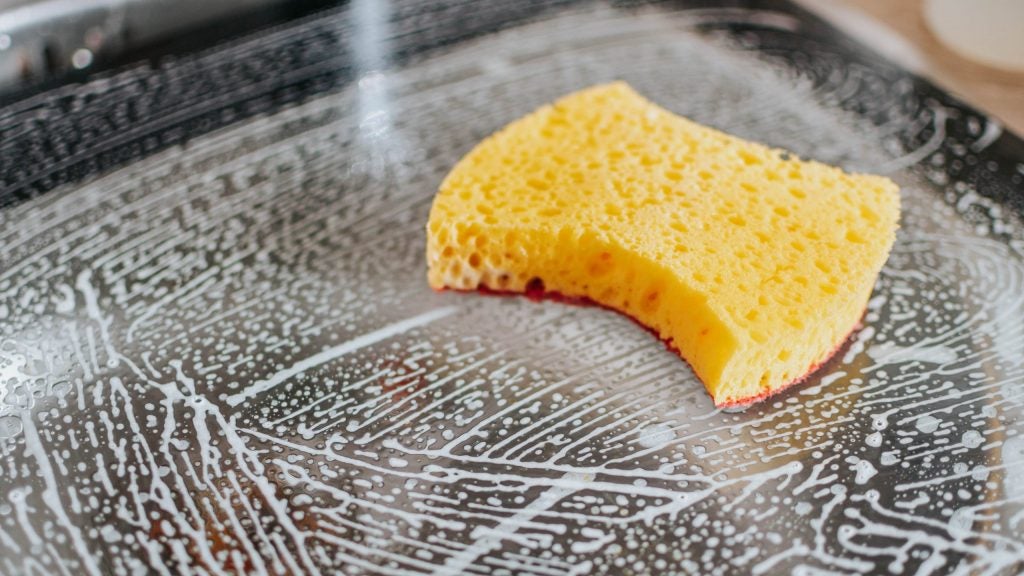“Behind You is the Sea” is from MQR’s Summer 2021 Fiction Issue. You can purchase the issue here.
After Baba died, Reema met Torrey, who was sweet-talking and cute then even though he’s heavy now. They were a thing in high school, which is how we got Gabriel. Getting knocked up is haram but abortion is more haram, according to Mama. Gabriel was born when I was only four. So that’s our family—me; Mama, who is basically a zombie that the neighbors tsk about; Reema; and Gabriel, who is seventeen and already has a moustache. And sometimes Torrey, when he and Reema are back on.
Torrey is in the kitchen now, scanning his Twitter and eating a bowl of cereal. “Where you going so early?”
“I have a job today.”
“Not that crazy lady on Falls Road?”
“Hell no.” My last job was in a home where the lady wouldn’t pay me, for the third day in a row, so I refused to leave. She kept screaming at me that her husband was an attorney and she was good for it, but she didn’t keep cash in the house. When she actually called her husband at work to come deal with me, I got scared and called the only man I knew would have my back. And when her husband saw Torrey, he handed me three hundred dollars in cash and told me to get the fuck out of his house.
“Today’s a new lady, in Guilford,” I say. “Dalia Ammar. I think she went to high school with you and Reema. She’s Palestinian.”
“Don’t mean shit. Sometimes you own is worse.” He wipes a drop of milk off his chin with his sleeve. “Ok, you call me.”
“You working today?” I ask.
“Yeah, but I’m around. Happy to mess with someone today.” Torrey acts like a badass, because he is. When he walks by, Mrs. Alessandro’s sons retreat inside her house. They don’t want to catch a look from him. But I’ve also seen him cry when Gabriel got baptized, and I saw him weeping once in the hospital waiting room when Reema had an emergency appendectomy. The man leaned over his knees and sobbed like a child and nobody in the world could console him until they came out and promised Reema had come through.
I drive the Buick carefully. The bench seat is so old that the beige fabric is worn, pushing out stuffing like cellulite. The exhaust pipe hangs like a pregnant belly, so I have to be careful on speed bumps. Reema bought it from the Bulgarian guy at work who washes dishes. He let her drive it for a week before taking our combined five hundred dollars.
At the light on Charles Street, I feel hungry. Last week, the Dollar Tree had microwaveable Ramen, two multi-packs for a dollar, and I cleared the shelf. But they’re all gone now, between my addiction and Gabe studying for the AP exam late at night. I’m almost there, and since I’m early, I decide to get something to eat for lunch later. You never know if these people will feed you, even though you’re giving them ten hours of your day. There’s a small grocery store on Charles, so I pull into the parking lot between an Audi and a Tesla. Holy shit, I think, as I step out, making sure my car door doesn’t touch the sleek red of the Tesla. Its door handles are flush with the side, and I wonder how you even get in. When I peek through the window, I see an iPod thing on the dashboard. It’s so crazy that I keep staring. Suddenly, the handle emerges from the door, like some science fiction spaceship shit.
“Excuse me,” says the snotty voice of a guy who’s dressed like me: jeans, a T-shirt, sneakers. Except not like me, because he’s so branded: there are logos all over his clothes, logos I don’t even recognize, though I understand that I am supposed to recognize them—a lion, a tree, an alligator. This guy doesn’t look like he’s ever been one with nature. He’s glaring at me while holding a metal coffee thermos that also has a logo on it.
“Sorry.” I shut my own door by pushing down the lock and holding out the handle as I close it. An old white man smiles and greets me when I walk in. I pause in case he needs to search my bag, but as far as I can tell, this is his job: to say hello.
In the bakery aisle, I stand behind a woman in a skirt and heels who’s ordering a loaf of something I don’t understand. She turns as she waits, starts to smile at me, then looks me up and down and turns back around without completing the smile, so fuck her. Sometimes Reema doesn’t know when people are looking down on her. I always do. I can smell the fakeness on people like drug store perfume. I can sniff out the fragility that turns them nasty.
Behind a glass cage, there are cakes and Danish lacquered in glaze and egg wash, looking like little pieces of art. There’s a loaf of focaccia, which I know how to pronounce because I subscribe to some foodies on YouTube; I make a note in my phone to find a recipe and try it at home. Everyone gets excited when I bake, because they know I can make anything. In the case there’s something called an opera cake, which looks like a tuxedo, and a donut crusted with sprinkles that look like jewels. Also a chocolate tart with a juicy strawberry, like a raw heart, in its center.
“How much is the donut?”
Looking annoyed, the guy says, “4.75.”
“For one?”
He smirks and points to a pretty blackboard in a white frame, propped up on the counter. The prices are chalked in different pastel colors. I walk away to the snack aisle, where I pause over granola that costs $8.98. A bag of corn chips is $5.98—the same brand they have at the CVS on my block, where they cost three bucks.
When I walk out of the store empty-handed, the old man gives me a gummy smile. As I drive down the street towards Guilford, I know there won’t be a drive-thru. This is not a value menu kind of neighborhood. I’ll prepare better tomorrow, after I survive today.
To read the remainder of “Behind You is the Sea” you can purchase the Summer 2021 issue here.







